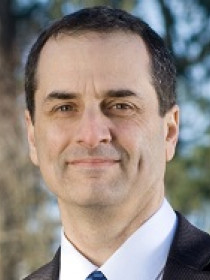
Eban Goodstein
Connect with Eban
About Eban
Goodstein is an environmental economist with a research focus on the employment and competitiveness impacts of environmental policy, climate change solutions, and sustainable business. At Bard, he directs a graduate MBA program in sustainable business, and two MS degree programs in environmental and climate policy. He serves on the editorial board of Sustainability: The Journal of Record, is an Advisor to Chevrolet on their Clean Energy Initiative, is on the Steering Committee of Economics for Equity & the Environment, and is a member of the Board of Directors of the Follett Corporation. In recent years, Goodstein coordinated a series of national educational events around climate change, engaging over 2,500 colleges, universities, and K-12 schools in solutions-based dialog. He currently directs C2C Fellows (www.bard.edu/cep/c2c/), a network of undergraduates and recent graduates who aspire to sustainability leadership in business and politics.
Contributions
In the News
Publications
Develops a feasible emission reduction path to achieve 350 ppm by the year 2200. From the available literature demonstrates that a 350 target could be achieved at a net cost of between zero and 3% of global GDP.